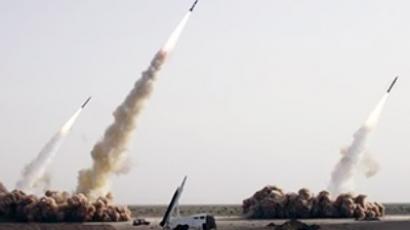ROAR: Russian Opinion and Analytics Review, Apr.20

This Monday ROAR presents an opinion on nuclear disarmament and interviews concerning political problems in Ukraine and Georgia.
Evgeny Grigoriev, the foreign policy commentator of NEZAVISIMAYA GAZETA writes on the problem of nuclear disarmament. The nuclear arms issue has come into the light again, writes the author, and the new US president is attempting to gain political dividends from an illusion of a nuclear-free world.
Russia and the US are well on the way to signing a new treaty on strategic assault weapons later this year. The Easter holidays were marked in Europe by a series of usual Easter anti-war marches and demonstrations, greatly inspired by president Barack Obama’s latest speeches. However, says the commentator, notwithstanding the evident tendency to progress, even the youngest generation of today may not see the end of the era of nuclear weapons.
The writer says that illusions are deceptive while setting adopting an ideal goal may have a positive influence on the dynamics of the disarmament process. For now, he says, the main task is to start making concrete steps in order to raise the barriers of international nuclear security.
Today, he continues, the situation is far from satisfactory. The number of countries possessing nuclear ‘explosives,’ as well as those which are determined to acquire them is on the rise while the arsenals of great nuclear powers are being developed and modernized.
In the past decade, says the author, too much attention has been paid to possible proliferation by Iran and North Korea and too little to the limiting of the existing nuclear arsenals. The general public has been less active than before: anti-Globalist actions everywhere in the world have been much bigger and had much more influence on government decision-making than anti-war protests.
With the renewed Russia-US dialogue on nuclear disarmament it would be symbolically meaningful to rid Europe of the old out-of-date American nuclear weapons which are still stored in several European countries – altogether 400 units in Germany, Belgium, The Netherlands, the UK, Italy and Turkey combined. Europe may become a much safer place if the nuclear powers agree to store such weapons exclusively in their own territory, concludes the author.
The same newspaper publishes an interview with Vladimir Litvin, the Ukrainian politician who has always been capable ‘to stay well above political fights going on between his peers and opponents while keeping faithful to his own policies.’ At the moment Vladimir Litvin is the Chairman of the Supreme Rada (the Speaker of the Ukrainian Parliament).
The politician says that Ukraine is neither falling into the abyss, as the opposition says, nor ‘moving along the path of reforms’ as the government parties insist, but is entering a totally new phase in its history. Litvin says Ukraine has no more potential of further development based on the ideologies existing today among Ukrainian politicians. He says if those politicians do not grasp that and start to change their course of action, Ukraine as a state may become history.
The chairman says that after the next presidential election there may be another round of nationwide repossession of property and assets as political interest in Ukraine is now secondary to business interest. In the past years the economy has become 80% private, so there will be a lot of struggles between those who win the election against their predecessors (no one will leave prospering businesses to the enemy without a fight), and most probably huge numbers of ordinary citizens will be involved in that struggle.
The Ukrainian politician says that, since big business has made the Ukrainian political structure subservient to its interest, everyone in the current government is a businessman or represents a business, while a nation should definitely live not by agreements between its businessmen but by the law.
Instead, he says, every president of Ukraine feels and acts like a GM of a big corporation while the parliament is supposed to play the role of a shareholders’ meeting. If, in the past, a multi-colored parliament with a dozen different ideologies was fine for them, today a president wants nothing less than total control through his own majority faction. It’s like holding a certain number of shares in a company to ensure a majority vote.
With the current mood of the Ukrainian people it may become possible for a while, because now that the general public is once again disappointed with all politics and busy with everyday survival, says the politician.
Asked about the role of foreign powers – the US, Europe and Russia in the Ukrainian political process Litvin says that today the competition between them over influence upon Ukraine is gaining a more civilized form and as such may even be useful and beneficial for Ukraine.
Russia’s impact on the current events in Georgia is minimal, says the Special representative of the EU in the Southern Caucasus Peter Semneby in an interview with VREMYA NOVOSTEI. He elaborates: while the presence of Russian troops in close proximity to Tbilisi is definitely a factor of the current political environment in Georgia, after listening to speeches and conversations of the protesters who marched against Georgian President Saakashvili, he concluded that Russia was not much of a concern for them. ‘I think, in the circumstances, that is good,’ he says.
Evgeny Belenkiy, RT













